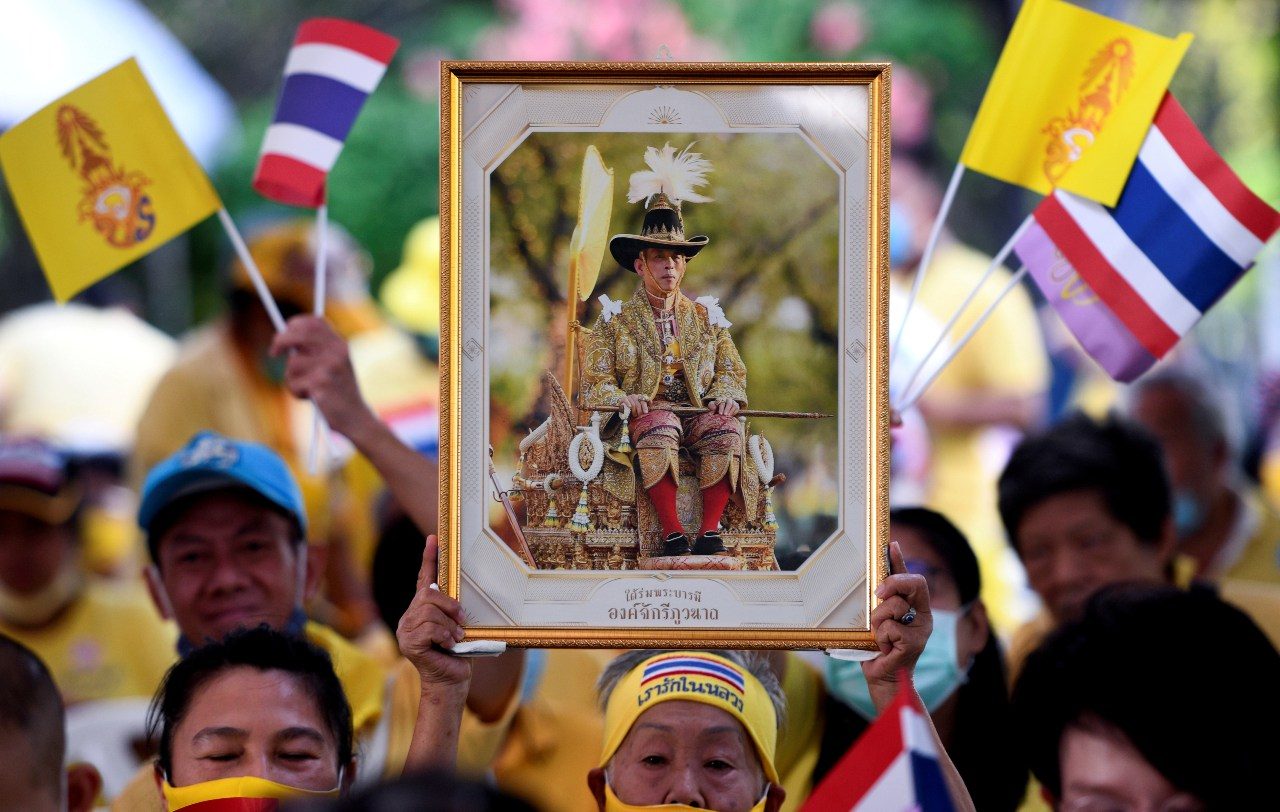SUMMARY
This is AI generated summarization, which may have errors. For context, always refer to the full article.

Thailand defended its controversial law criminalizing criticism of its powerful monarchy on Wednesday, November 10, as United Nations member states expressed concern over its rights record and arrests of youth protesters pushing for royal reforms since last year.
Thailand has one of the world’s harshest “lese majeste” laws, setting jail terms of up to 15 years for anyone convicted of defaming, insulting or threatening King Maha Vajiralongkorn and his closest family.
During a universal periodic review on Wednesday by a working group of the UN Human Rights Council, Thailand was urged to amend its lese majeste law by some member states who said it restricted freedom of expression.
Thai officials, however, argued it protects the monarch and therefore national security, and that royal insult cases were carefully handled.
“It reflects the culture and history of Thailand, where the monarchy is one of the main pillars of the nation, highly revered by the majority of Thai people,” Nadhavathna Krishnamra, a foreign ministry representative, told the meeting.
“Its existence is closely linked to safeguarding the key national institutions and national security.”
Thailand’s royal family is officially above politics and the king constitutionally enshrined to be held in “revered worship.”
Since student protests began last year, at least 156 people, including 13 minors, have been charged with lese majeste, according to records compiled by the Thai Lawyers for Human Rights group.
At the UN review, Belgium, Canada, Finland, France, Germany, Norway, Sweden and Switzerland were among those which called for Thailand to amend or review the law.
The United States said it was “concerned by the expanded use” of the lese majeste law and its impact on freedom of expression.
Political parties in Thailand last week made public their positions on amending the lese majeste law, after a key opposition party proposed a parliamentary review, triggering a discussion off-limits for decades.
A Thai court earlier on Wednesday ruled that three activists who last year called for royal reforms, including abolition of the lese majeste law, had violated the constitution with a “hidden intention” to overthrow the monarchy. – Rappler.com
Add a comment
How does this make you feel?
There are no comments yet. Add your comment to start the conversation.